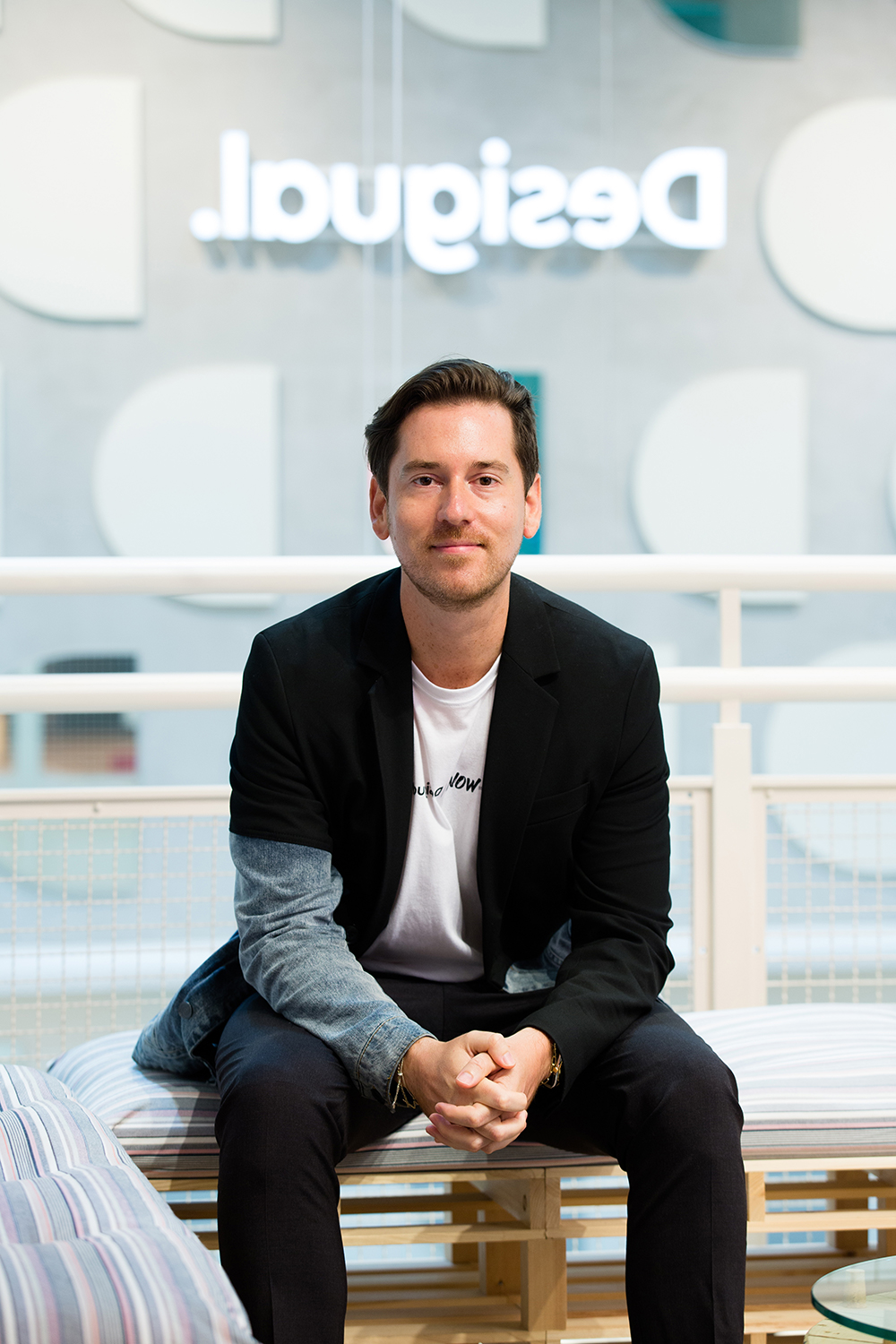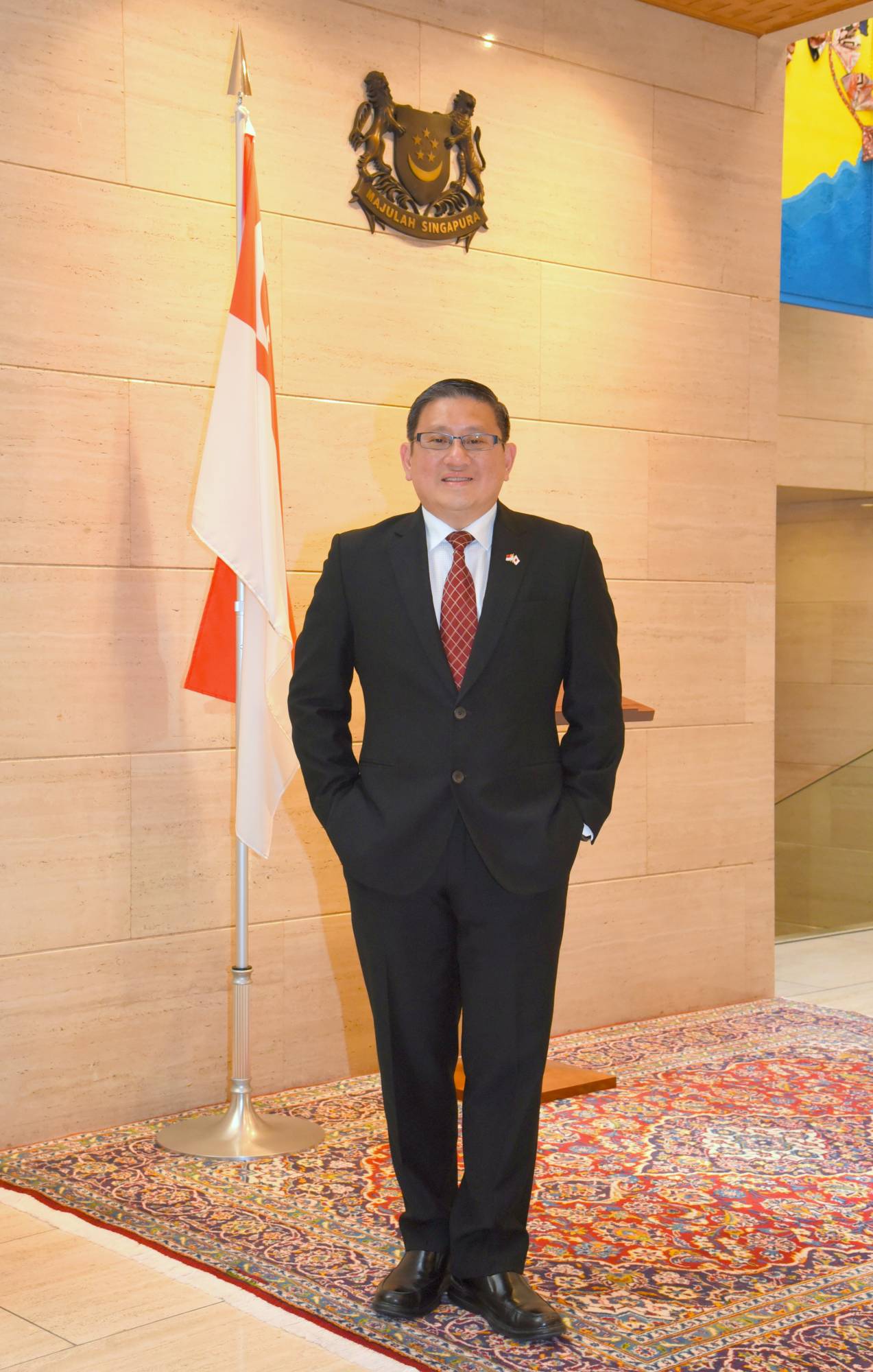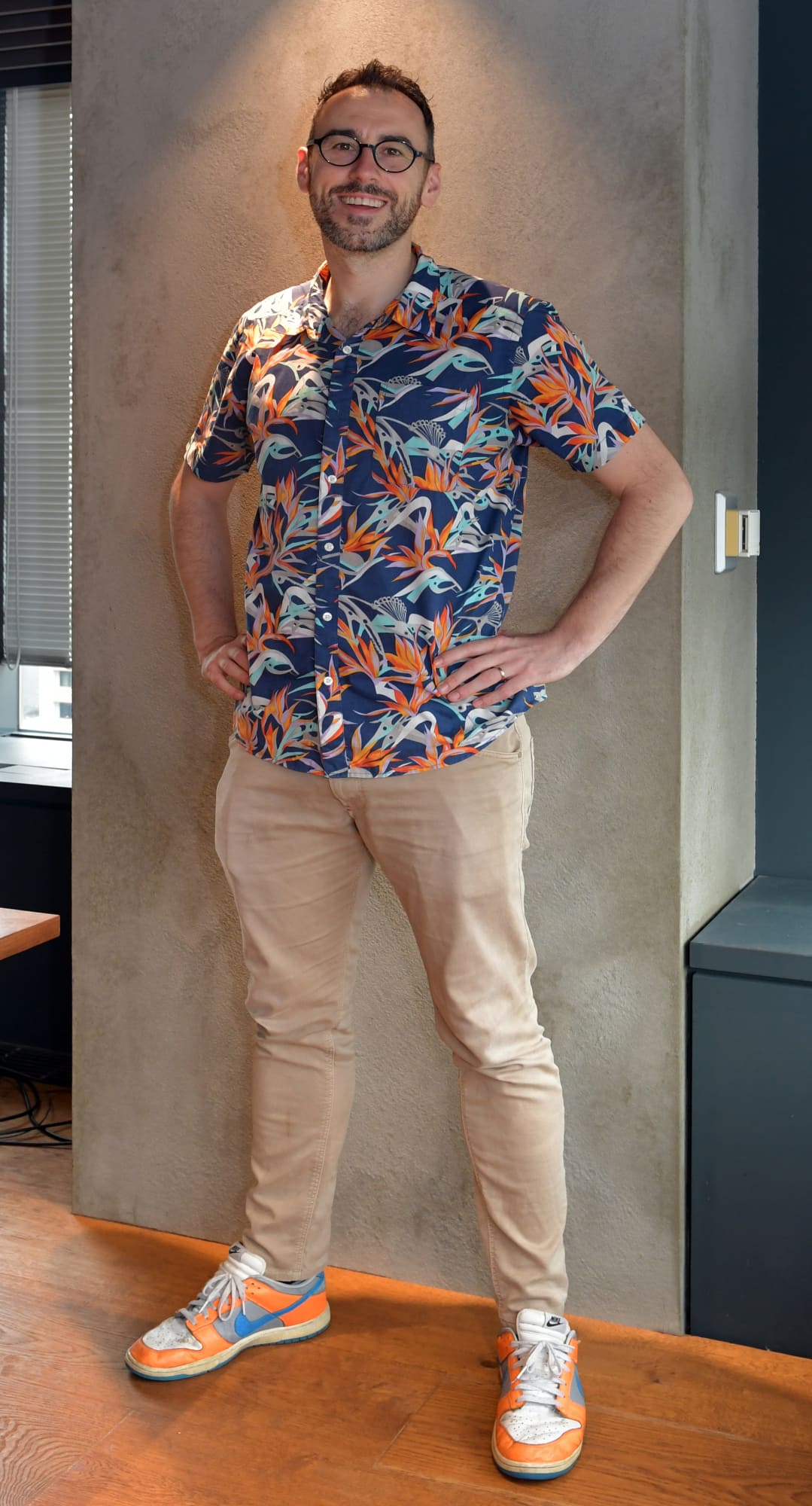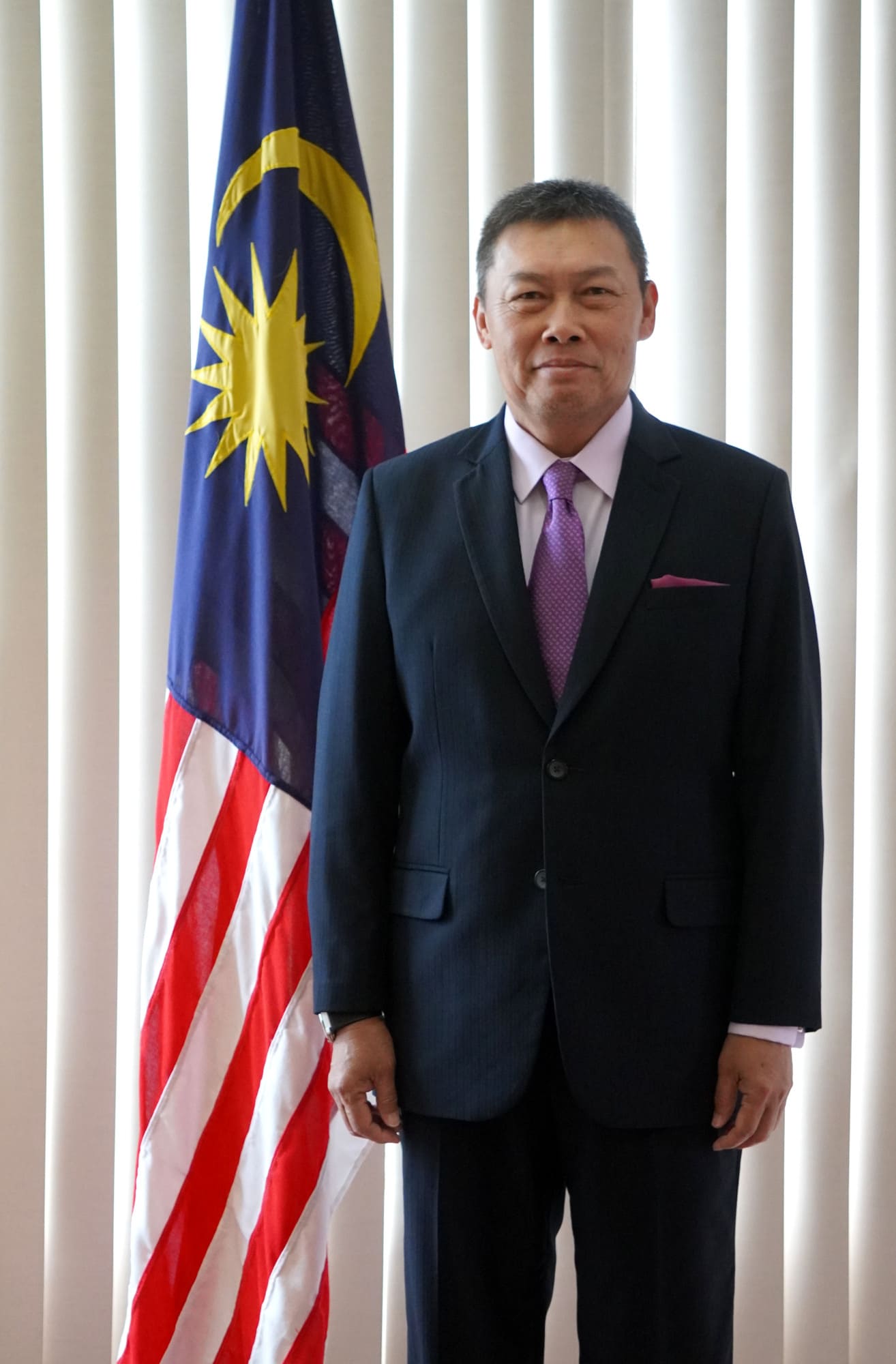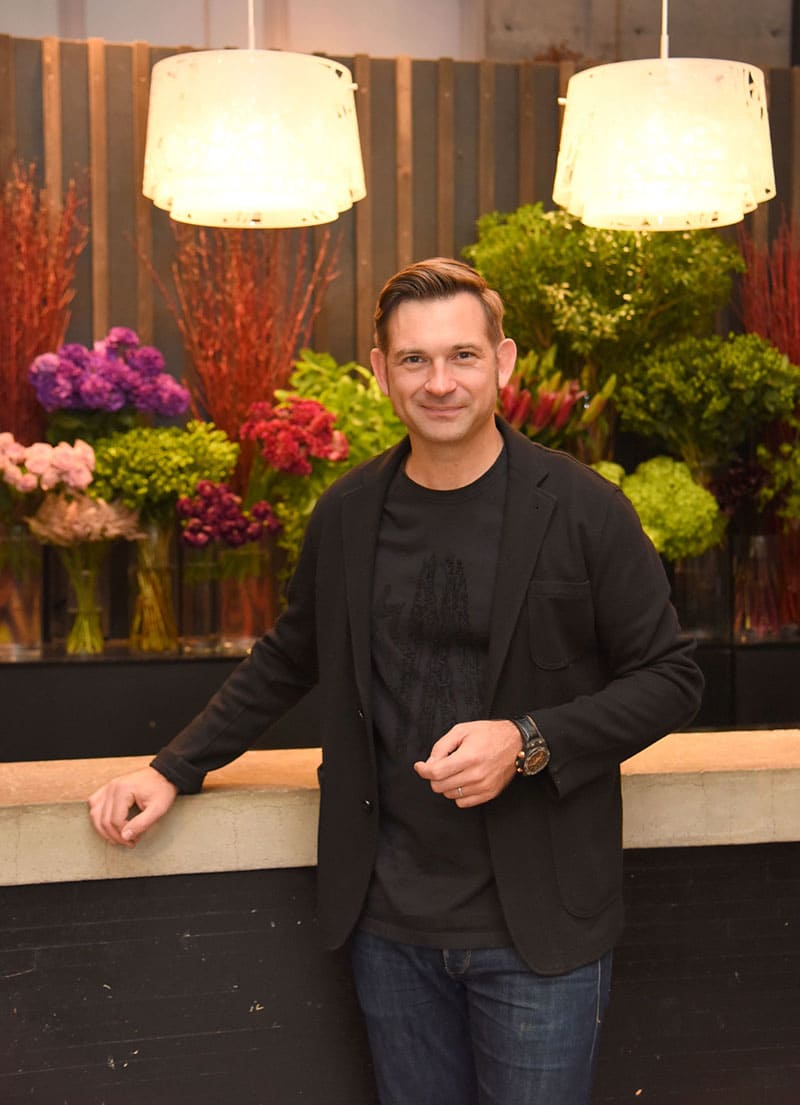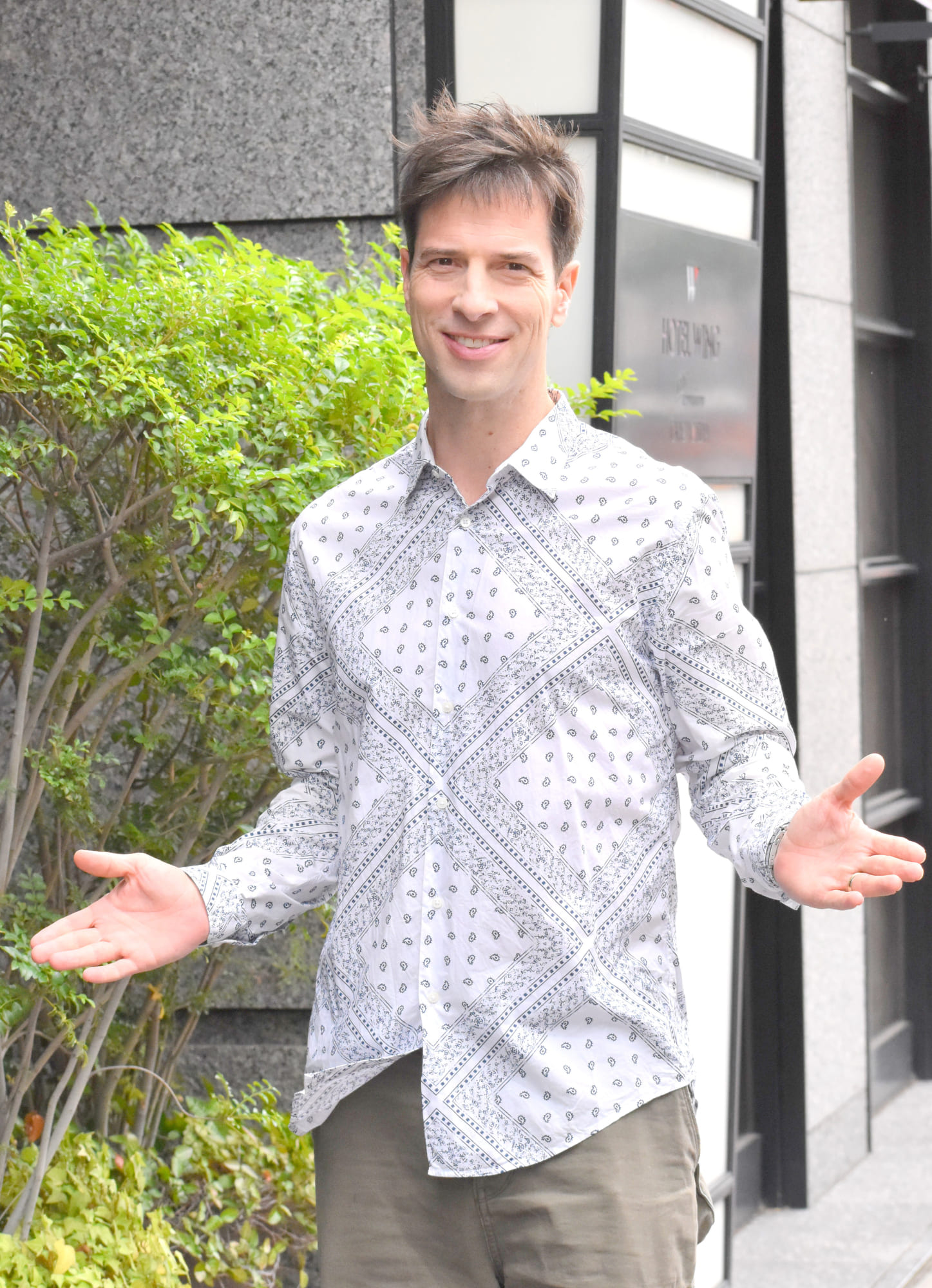
September 29, 2019
Stand-up plans: Trading caricatures for awareness
Patrick ‘Pakkun’ Harlan’s push for diversity and tolerance through laughter
BY ARI SHARP
CONTRIBUTING WRITER
- Name: Patrick Harlan (Pakkun)
- Title: Comedian
- DoB: Nov. 14, 1970
- Hometown: Colorado Springs, CO
- Years in Japan: 26
A half-hour into chatting with Patrick Harlan over coffee at a Yotsuya bakery, two women grab seats nearby. The ladies glance over to the tall American and do a double take, recognizing him from his television appearances. Harlan chats breezily with the pair, his efforts to put them at ease only leaving them more enchanted.
Such encounters are common for Harlan, better known in Japan by his stage name Pakkun, whose nice-guy persona on screen seems to differ little from his real self. In over 20 years as a performer, much of it in double act Pakkun Makkun, there are few areas of popular culture he has not touched.
The 48-year-old’s first contact with Japan was immediately after college, when he ventured across the Pacific with a student chorus. “People are nice and fun and they’re laughing all the time, even if things aren’t funny,” he said of his earliest experiences here. “I thought it would be much more closed-minded.”
The Colorado native decided to stay in Fukui Prefecture and immerse himself in the language and culture. Harlan connected with Japanese friends and got involved in the theater. His performance work led to radio, and soon he ventured to Tokyo.
It was in the capital in 1997 when Harlan caught the attention of a talent agent who saw potential for the American to partner up with Makoto Yoshida, a young Japanese performer, to form a manzai comedy duo. At a dinner to introduce the two, the agent skipped out on the bill, giving the pair something to bond over. They decided to give manzai a go, with Yoshida as the straight man persona to Harlan’s funny man.
Harlan did not want to be a novelty act. It would have been easy for the American to play a dopey caricature, but he saw the limits of such an act, professionally and creatively. He wanted instead to respect the intelligence of his audience.
“I don’t want to be the foreigner. I want to be the guy who understands and is still funny,” he said. “We made a very conscious decision to write scripts that you could perform with two Japanese people.”
It was not easy at the start. The duo took to the streets, performing during hokōshatengoku (pedestrian-only times) in neighborhoods like Shibuya and Harajuku. Word of Pakkun Makkun spread, and the early rent-a-crowd was replaced with strangers who would recognize them on the street. Live comedy show connections led to a TV audition and they landed a regular spot on infotainment show, “Just.”
As the saying goes, nothing succeeds like success. The pair found themselves in demand, continuing their manzai act, but also taking on acting and voice-over work, even writing learning materials for Japanese looking to improve their English.
Harlan knows comedy’s place in Japanese public life. While jokes in other places may be laced with politics, Japanese audiences are seeking light relief that amuses rather than challenges. He is at pains to avoid divisive issues in his comedy, which instead is more likely to feature good-natured irony.
“The reason we don’t do politics is that it will piss people off,” he said. “You don’t want people to be pissed, you want them to be happy. That’s true for Japanese communication in general. You don’t hear a lot of biting sarcasm, you don’t hear a lot of harsh commentary.”
But Harlan does have a broader agenda. He is keen to nudge Japan toward greater tolerance of diversity, including for foreigners. “I push for changes in Japanese culture, which is presumptuous of me — I’m not Japanese — but I do push for those,” he said. “I try to encourage people to get ‘off manual.’ People with a manual can do anything in this country but if they’re asked to do anything not covered by the manual, they often struggle.”
The comedian sees the influence of voices like his in the Abe administration’s acceptance of more foreign workers, which may lead to some becoming Japanese citizens.
Harlan has won plaudits from fellow comedians. “Knowing firsthand how hard it is to make people laugh in your native language, and how much more difficult it is in another language, I have nothing but respect for Pakkun,” said BJ Fox, the bilingual Brit behind NHK sitcom, “Home Sweet Tokyo.”
Japanese comic Terumi Ishii agrees. “Being successful as a comedian in a foreign country is extremely difficult,” she said. Beyond the language, “you should follow a different comedy context, and most of all you have to be loved by the people there”.
Harlan has built a life in Tokyo. He and his wife of 15 years have a son, 12, and daughter, 10. The siblings often write and perform comedy sketches around the house, sometimes with dad, and Harlan is open to them following in his footsteps. (Though, after they graduate from Harvard, he notes wryly.)
When he first started in Japanese show biz, Harlan had dreams of using it to build experience ahead of a tilt at Hollywood. But the move never happened. As he notes, were he to head there now, little of the profile he has accumulated here would carry over, and he may be battling for scraps rather than the juicy morsels he can enjoy in Japan.
“I chose instead to have an adventure, to pursue something that obviously I should fail at: ‘There’s no way this white guy is going to make it in Japanese comedy, it’s just ridiculous.’ But it would be a great story,” he said.
The road from Harvard to comedy
Patrick Harlan grew up in the 1970s in Colorado Springs, Colorado, where his childhood jobs included work as a paperboy. He attended Harvard, where he studied comparative religion. His involvement with the university’s glee club first brought him to Japan.
He settled in Fukui Prefecture, where he taught English and learned Japanese, also dabbling in theater and radio. After moving to Tokyo, he took on acting, modeling and TV roles before forming the manzai comedy duo Pakkun Makkun with Makoto Yoshida in 1997.
Within two years, the pair landed a regular spot on daytime infotainment show, “Just.” They have continued to perform onscreen and onstage. Harlan is also a regular on panel discussion shows, bringing a cultural outsider’s perspective to the issues of the day.


